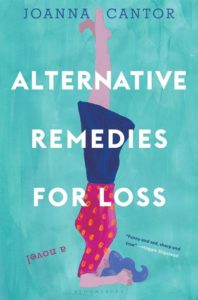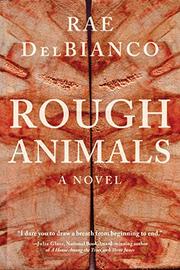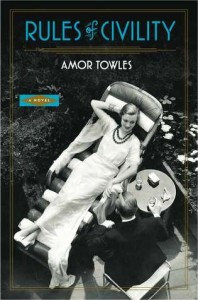Joanna Cantor: Alternative Remedies for Loss (A Novel)
July 31, 2018 by David
Filed under Fiction, WritersCast
 Alternative Remedies for Loss – Joanna Cantor – Bloomsbury – Hardcover – 9781635571714 – 320 pages – $26.00 – May 8, 2018 – ebook editions available at lower prices. Paperback comes out
Alternative Remedies for Loss – Joanna Cantor – Bloomsbury – Hardcover – 9781635571714 – 320 pages – $26.00 – May 8, 2018 – ebook editions available at lower prices. Paperback comes out
One of the great things for me about doing this podcast is that I have been introduced to such a varied range of books and writers. When I started this series, my intention was primarily to make myself a more regular reader. Like so many other people, I have found the intrusion of devices and media of all kinds distracting (in an enjoyable way for the most part), taking so much of my time away from the pure pleasure of reading, that I thought a regular schedule of talking to writers about their books would give me the discipline I generally lack, and make certain that I both read more books, and think more reflectively about what I read.
In many ways, of course, that intention has succeeded. But one of the surprises for me in this process has been that so many publishers and authors have approached me to read and interview an amazingly wide range of books. I have done my best to read books that are outside my “normal” range of interests. And that has been incredibly rewarding. Today’s interview, with the author of Alternative Remedies for Loss demonstrates one of those enjoyable discoveries that being a book podcaster has enabled.
Joanna’s story revolves around Olivia, who leaves her senior year at college to be with her mother through her terminal illness. The through line of the book is Olivia’s effort to cope with this unexpected loss. She takes a job in media in New York City in a sort of dazed state, and while it appears the rest of her family is moving on with their lives, Olivia cannot quite figure out what is going on now. Then she accidentally discovers that her mother might have been involved with a man other than Olivia’s father, and this emotional shock triggers Olivia’s quest to more fully understand her mother, come to terms with her own self in the world, and essentially to work through the emotions that are blocking her from being at peace.
There’s a great energy to this book, and because the writing is so good, the characters believable and fully formed, it is easy to get wrapped up in Olivia’s effort to become a fully formed human being in challenging emotional circumstances, perhaps her first in a fairly privileged upper middle class upbringing that many readers will recognize, and perhaps identify with themselves. Author Cantor refuses to whitewash her main character and gives her flaws and weaknesses that bring her to life. A good novel solves problems we sometimes did not realize we were able to engage with, and this one does that for me – I am glad to have had the chance to engage with Olivia’s story, and it was a pleasure to meet and speak with Joanna.
Joanna Cantor is a very talented writer. She lives in Brooklyn, teaches yoga and continues to write fiction. I really enjoyed reading this book and talking to her about writing, first novels, and of course, this book.
Joanna Cantor’s website is worth a visit.
(Production note: in doing this interview, I had a problem with the recording device, and we had to finish the conversation by phone, so you will notice some variations in the sound during the course of this particular podcast. I’ve got a new recording device now and hope to avoid problems like this in the future.)
Podcast: Play in new window | Download
Rae DelBianco: Rough Animals (A Novel)
July 10, 2018 by David
Filed under Fiction, WritersCast
 Rough Animals – Rae DelBianco – Arcade Publishing – hardcover – 9781628729733 – $24.99 – June 5, 2018 – ebook editions available at lower prices.
Rough Animals – Rae DelBianco – Arcade Publishing – hardcover – 9781628729733 – $24.99 – June 5, 2018 – ebook editions available at lower prices.
I’ve long believed that Cormac McCarthy is the most recent heir to the position held previously by William Faulkner, being the most intense and stimulating writer of his generation. Having read this first novel by the young writer, Rae DelBianco, I believe she will be the next in line to wear that particular literary crown. I do not believe I have read any fiction recently that is as powerful and hallucinatory as Rough Animals. The book grabs you by the head and heart immediately and simply never lets go. It can be painful, even horrific in places, to read this book. But I was captivated by the writing, the characters and the story – and found it impossible to put the book down. I needed to take breaks from reading this book, a sort of breath-catching effort is required for the reader to regather oneself, and be ready for the next emotional ride. And the descriptions of landscape, of animals and of people are simply stunning.
Intense is not quite enough to describe this novel. So after reading this book, and gathering my wits about me, I was really interested to talk to author DelBianco. I honestly don’t know how she managed to pull off this high-wire effort – writing a novel with this level of luminescence is just hard to do. Rough Animals is about a brother and sister who grow up hardscrabble on a small ranch in the very isolated Box Elder canyon of Utah. When the novel opens, and it does so with a scene that is at once powerful, artful, violent, and gripping, in a way that presages so much of the writing and storyline of the rest of the book, we are simply unprepared for the range, the depth of language and vision DelBianco exhibits.
The book goes on from there, McCarthy-like, in a spiritual saga of sometimes unexplainable violence and tenderness, across a brutal moon-like western landscape. The people in this book are sometimes like aliens, blasting themselves through a foreign galaxy on their way to discovering what it means to be a human being, while never really understanding how they got here in the first place.
Amazingly, for someone who has captured the language and beauty of the western landscape so well, DelBianco is actually not from the west. She grew up in Bucks County, Pennsylvania, a beautiful area not that far from Philadelphia, and she now lives in rural New Jersey, on a farm with her grandmother. How this author was able to transport herself into the modern wild west is a feat of almost superhuman imagination, with which I remain in awe. Delbianco has clearly set her sights on high ground, and with this novel, and has achieved something really remarkable – this is truly a brilliant first novel.
DelBianco has found her voice as a writer, and it’s a great one. I really recommend seeking out this novel and carving out a good block of time to spend with it. You will be richly rewarded. And I think hearing her talk about this novel, her writing, and the backstory behind this novel will make you want to read more from this new author.
Here is the author’s website, which is well worth a visit.
An interview with Rae DelBianco in Vogue magazine here. And Kirkus wrote a very good review of the book as well, here.

Podcast: Play in new window | Download
Amor Towles: Rules of Civility
November 4, 2011 by David
Filed under Fiction, WritersCast
 978-0670022694 – Viking – Hardcover – $26.95 (ebook and audiobook versions also available)
978-0670022694 – Viking – Hardcover – $26.95 (ebook and audiobook versions also available)
Amor Towles’ Rules of Civility has become my favorite books. This WritersCast interview series has allowed me to read some incredibly good books this year; Amor Towles’ story of New York City in 1938 has risen to the top of my list of novels I fell in love with.
Rules of Civility opens with the book’s heroine, older, successful, married, with her husband viewing the famous mid-sixties Museum of Modern Art showing of Walker Evans’ 1938 New York City subway photographs. She and her husband see and talk about two particular photographs – a man she knew in 1938 and who mattered hugely to her life and helped shape the arc of her entire life. Then the real story begins, as flashback to that high intensity period of her life, when by accident, she began the process of becoming the person we meet at the opening of the book.
It’s a great way to start a book. Reminding us of just how much a role chance and happenstance – and what we make of it – means to our lives. Author Towles loves the way opportunity winds around us, especially it seems at the fraught time in our lives when we are setting out in the world to define ourselves, when we make the choices that define our lives, sometimes purely accidental, sometimes with just an inkling that these choices will have monumental effects.
There is a wonderful story here. Our heroine, Katey (who grew up as Katya, an immigrant’s daughter), is living in Manhattan. It’s 1938, still Depression era America, but just on the cusp of its ending. New York is both gritty and glitzy at the same time. Katey is working as a legal assistant, going out at night with her limited funds and her few friends.
One night, she and her best friend meet a man who will thrust Katey into a new life, where she meets the smart set of society, and gains the confidence to become a modern, successful woman, in many ways mirroring the American story arc of the same period.
Towles is a terrific writer, and I found myself reading some passages aloud to revel in the beauty of his sentences. He brings New York in 1938 to life, reminding us how close we actually are to what is now almost a forgotten period of our history. The book made me want to see again some of the great movies of this era, all of which shared the ironic understanding of modern culture this book displays. I’m quite certain Towles has seen them all and internalized their values.
You need to read this story for yourself – it’s complicated and has an utterly rewarding denouement. Suffice to say, Katey learns a great deal about the people she meets, loves some, despises others, and absorbs what she learns on the way to becoming herself. This one year is the pivot point for her entire life, and the sense we get from the story is that New York has engendered the same for millions who came there for a very long time, though probably for many less self-aware than Katey and her author, Amor Towles. Here’s one of the great lines from the book that in some ways encapsulates the story it tells: “from this vantage point Manhattan was simply so improbable, so wonderful, so obviously full of promise — that you wanted to approach it for the rest of your life without ever quite arriving.” Perfect.
This is Amor Towles’ first published novel. In our discussion, we talked about how he was able to write it, despite having a full time job and a family. And we talked about the story of the novel, and its characters, and about New York in the 1930s, a great and somewhat neglected period for fiction. It’s a great book and I hope an equally rewarding conversation for listeners.
Amor Towles website is worth a visit. And you also might enjoy George Washington’s Rules of Civility (& Decent Behaviour In Company and Conversation) which plays a critical role in this novel. And a nonfiction piece he wrote called What I learned from Cole Porter on Oprah.com.
And a nonfiction piece he wrote called What I learned from Cole Porter on Oprah.com.
Podcast: Play in new window | Download
